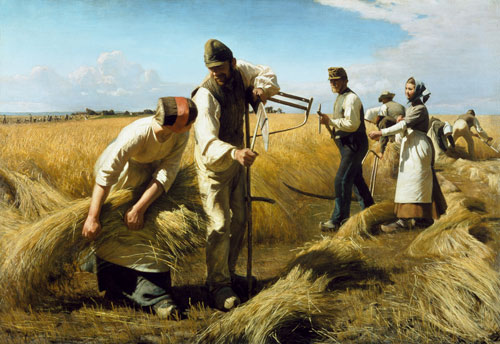We hear news stories of the persecution of Christians, such as at the hands of the Islamic State in the Middle East. Our natural reaction is to wonder why God allows such acts of cruelty against those who bear His name (which is separate from the question of whether they are bonafide Christians). And, as with all things, I believe that the answer is that it brings Him glory.
But how?
The Book of Acts gives us a number of accounts of persecution of the earliest Christians, including the Apostles themselves. Acts 8, for example, describes a persecution which broke out immediately upon the murder of Stephen the Deacon: "There arose on that day a great persecution against the church in Jerusalem" (verse 1). How is that according to the providence of God? The answer is in the rest of the verse: "They were all scattered throughout the regions of Judea and Samaria, except the apostles."
The persecution in Jerusalem pushed the disciples to spread out from their first home. Consider verse 5: "Philip went down to the city of Samaria and proclaimed to them the Christ." This should immediately remind us of the Lukan version of the Great Commission: "You will be My witnesses in Jerusalem and in all Judea and Samaria, and to the end of the earth" (Acts 1:8). It was the command of Jesus to His disciples that they carry the Gospel in concentric zones away from its first home. And, as is natural, they held back, staying in their comfort zone, as the American saying is. In the providence of God, the persecution in Jerusalem was, at least in part, the way of Jesus to push His church to obey His commission.
One of the things that Jesus told His first disciples was that the Gospel harvest was ripe, but workers in the field were insufficient (Luke 10:2). But, as is the wont of men, the disciples wanted to stay in their comfortable surroundings. It took persecution to send them out in obedience to the Lord of the harvest.
Of course, this isn't the only purpose of God in persecution. However, let it soak in. What is our comfort zone? And what will the Lord do to make it so uncomfortable that we will do the work to which He has called us?
POSTMILLENNIALISM
1 day ago





No comments:
Post a Comment